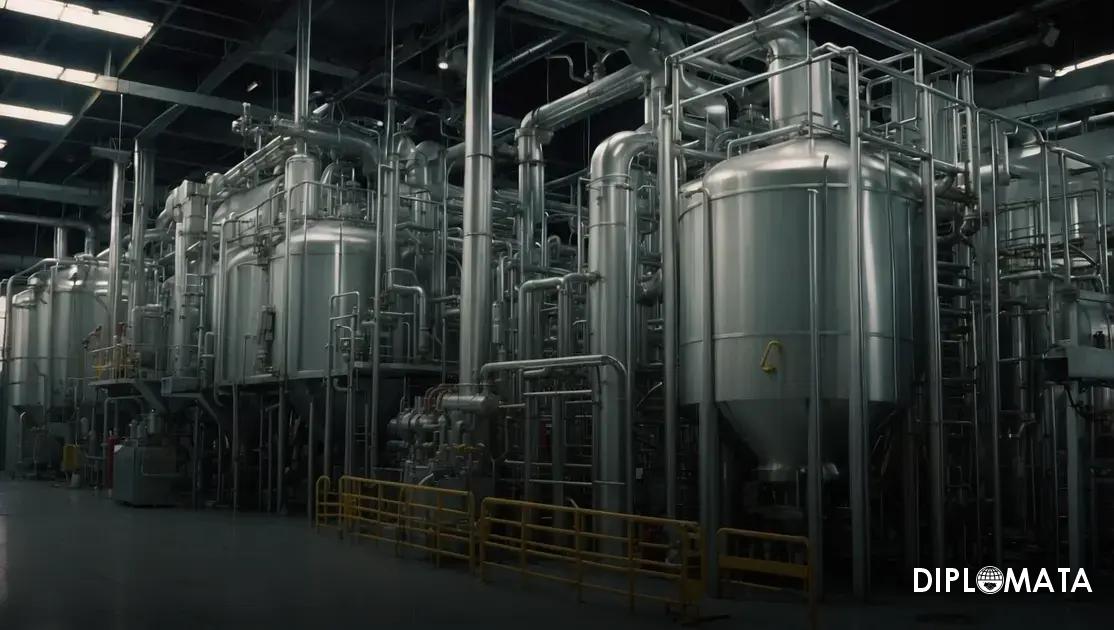What certifications are essential for chemical exports? These certifications ensure compliance with international trade regulations, safety standards, and environmental requirements for exporting chemicals.
What certifications are essential for chemical exports? This crucial question arises for companies and industries searching for AMINAS suppliers. Understanding the necessary certifications can significantly impact your ability to successfully export chemicals across borders.
In this article, we will delve into the specific certifications that play a vital role in facilitating international trade. You will learn how these certifications not only ensure compliance with legal standards but also enhance your credibility and competitiveness in the market.
By the end, you’ll be equipped with the knowledge to navigate the certification landscape and ensure your exports meet the necessary requirements, opening doors to global opportunities.

In today’s global economy, navigating the complexities of chemical exports can be daunting. As industries expand their reach, understanding the necessary certifications for chemical exports has become crucial. What certifications are essential for chemical exports? This article will guide you through the essential certifications needed to ensure compliance, safety, and marketability in the chemical industry.
Understanding the Basics of Chemical Export Certifications
Chemical export certifications are critical documents that verify compliance with international regulations and safety standards. These certifications serve various purposes, including ensuring product quality, adherence to environmental regulations, and confirming the safety of chemicals in transit. Common types of certifications include:
- ISO Certifications: These are globally recognized standards that demonstrate a company’s commitment to quality management systems.
- REACH Compliance: Required by the European Union, REACH ensures that companies register and assess the chemicals they import or export.
- GHS Compliance: The Globally Harmonized System of Classification and Labeling of Chemicals standardizes chemical labeling and safety data sheets (SDS).
Why Certifications Matter in the Chemical Export Industry
Certifications play a pivotal role in the chemical export industry. They not only enhance your company’s marketability but also ensure compliance with international regulations, which is vital for maintaining a good reputation. By obtaining the right certifications, companies can:
- Build trust with clients and consumers.
- Enhance operational efficiency and reduce liabilities.
- Access new markets that require specific certifications for entry.
Key Criteria for Evaluating Chemical Export Certifications
When selecting certifications for chemical exports, companies should consider several critical criteria:
- Reputation of the Certification Body: Ensure that the certifying organization is recognized and respected in the industry.
- Scope of Certification: Determine if the certification pertains specifically to your chemicals and markets.
- Cost and Time: Assess the financial and time investment required to obtain and maintain the certification.
Step-by-Step Guide to Obtaining Chemical Export Certifications
Obtaining certifications can be a detailed process. Here’s a streamlined guide to help you navigate:
- Research Requirements: Understand which certifications are relevant to your products.
- Gather Documentation: Compile necessary documents, including product information and safety data sheets.
- Submit Application: Complete and submit your application to the certifying body.
- Prepare for Audits: Be ready for inspections or assessments that may be required.
- Receive Certification: Once approved, ensure that you keep the certification up to date with regular reviews.
Advanced Tips and Best Practices for Certification Success
To maximize your certification success, consider these advanced strategies:
- Stay updated on changes in regulations and standards within your industry.
- Invest in training for your staff to ensure compliance and understanding of certification requirements.
- Utilize certifications as a marketing tool to differentiate your products in the marketplace.
Common Pitfalls in the Certification Process and How to Avoid Them
Many companies encounter challenges during the certification process. Here’s how to avoid common pitfalls:
- Neglecting Documentation: Ensure all required documents are accurate and submitted on time.
- Underestimating Costs: Budget for all aspects of the certification process, including potential audits.
- Ignoring Compliance Updates: Regularly review and update your compliance practices to align with new regulations.
By being proactive and informed, businesses can navigate the certification landscape more efficiently and effectively.
Conclusion
In conclusion, understanding what certifications are essential for chemical exports is vital for companies looking to thrive in the global market. By obtaining the necessary certifications, you not only ensure compliance and safety but also enhance your marketability and credibility. Don’t hesitate to invest in the right certifications—they are fundamental to your success in the chemical export industry.
Our Expertise in Chemical Export Certifications
Our content reflects a profound experience in the chemical market. With 20 years of expertise, we specialize in Glycerin Manufacturing, having our own manufacturing facilities and being a renowned supplier. This positions us as a trusted source on what certifications are essential for chemical exports.
Our Location: Av. Ipanema N° 165 – Empresarial 18 do Forte, Barueri – SP. CEP: 06472-002





